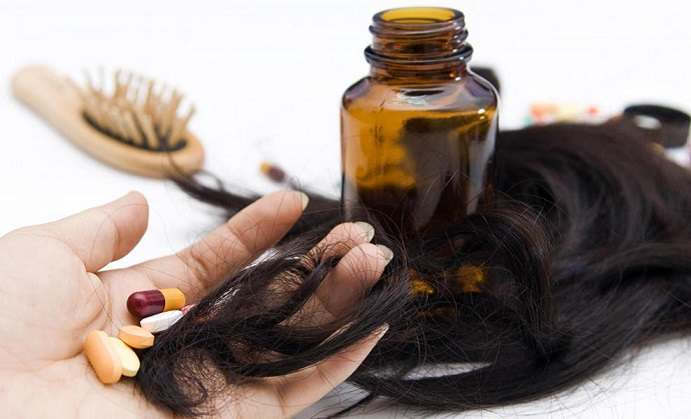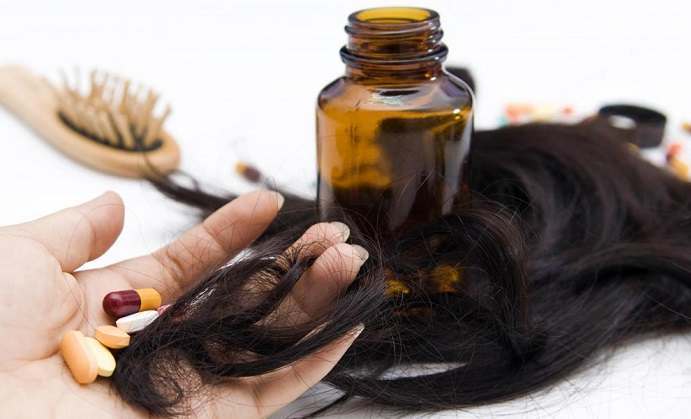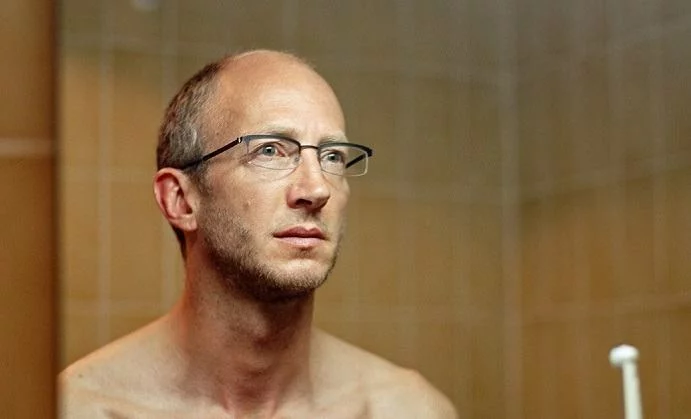Hair grows at a rate of 1.25 centimeters or 0.5 inches per month, which totals at 15 centimeters or 6 inches per year. At any particular moment, about 85% of hair is actively growing, while 10% to 15% is in stagnation. You lose up to a 100 strands each day, which is pretty common as the average man or woman has around 100 000 to 150 000 strands of hair. Hair loss is attributed to a number of different reasons, mostly genetics, hormonal imbalance, underlying medical conditions, stress and deficiency in certain minerals and vitamins. Besides specific medical medicinal factors, all other can be averted by enriching your diet and leading a healthier lifestyle.
Hair starts growing from a root inside the follicle. The rood is made of protein cells, and as it is fed by the blood from the blood vessels in the scalp, it creates more cells. The cells get pushed through the oil gland, which keeps it soft and shiny and finally, through the skin. By the time hair comes out of the skin, it is made from dead cells compressed into a keratinized protein chain. That is why proteins are important for the hair’s growth. It grows in three phases, anagen or the actively growing phase, telogen, the transition phase and finally catagen, the phase where follicles are dormant and hair stops growing.
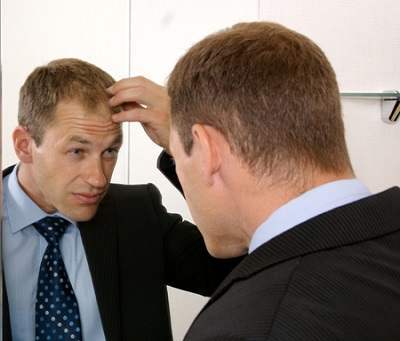 In addition to producing essential keratin, amino acids also create red blood cells, which in turn deliver nutrients and oxygen to hair-producing follicles. Of course, nutrient-rich hair makes for healthy hair. However, if you are experiencing hereditary hair loss — such as common male-pattern baldness — eating a sufficient amount of amino acids, or even boosting your intake, will not slow the loss or regrow your hair. As these proteins contribute to everything from organs to bones and skins, additional effects of a healthy amino-acid intake range far and wide, from improved memory to the prevention cold sores.
In addition to producing essential keratin, amino acids also create red blood cells, which in turn deliver nutrients and oxygen to hair-producing follicles. Of course, nutrient-rich hair makes for healthy hair. However, if you are experiencing hereditary hair loss — such as common male-pattern baldness — eating a sufficient amount of amino acids, or even boosting your intake, will not slow the loss or regrow your hair. As these proteins contribute to everything from organs to bones and skins, additional effects of a healthy amino-acid intake range far and wide, from improved memory to the prevention cold sores.
Amino acids are crucial for production of protein. Keratin is a protein which makes around 88% of a single strand of hair. There are 23 different types of amino acids, but five of them directly influence hair growth: arginine, cystine, cysteine, lysine and methionine. The body can produce some of these acids, but lysine and methionine can only be taken via food and supplements.
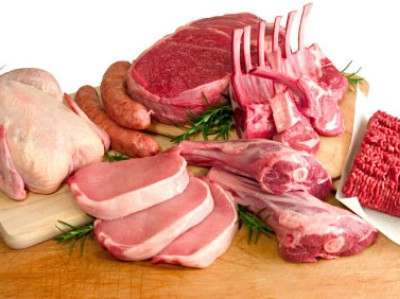 In addition to protein, amino acids are involved in production of red blood cells, which carry oxygen and nutrients to the follicles, so the health of your hair is directly dependent on their regular intake. Foods that are rich in amino acids include lean red meats, low fat cheeses, eggs whites, wheat and wheat flower, sunflower seeds and nuts such as almonds, cashews and Brazil nuts. The B complex vitamins contain a group of vitamins essential for your health. They regulate metabolism, maintain the central nervous system and are vital for your skin and hair.
In addition to protein, amino acids are involved in production of red blood cells, which carry oxygen and nutrients to the follicles, so the health of your hair is directly dependent on their regular intake. Foods that are rich in amino acids include lean red meats, low fat cheeses, eggs whites, wheat and wheat flower, sunflower seeds and nuts such as almonds, cashews and Brazil nuts. The B complex vitamins contain a group of vitamins essential for your health. They regulate metabolism, maintain the central nervous system and are vital for your skin and hair.
Thiamin (B1), riboflavin (B2) and niacin (B3) are responsible for nutrition of the follicle. Pantothenic Acid (B5) makes the hair shiny, adds elasticity to the strand and prevents overall hair loss. Deficiency of pyridoxine (B6) has been linked to appearance of dandruff and Cobalamin (B12) has an indirect connection to hair, as it is responsible for performing a number of metabolic functions. Best sources of B complex vitamins are red meat, eggs, salmon and leafy greens such as spinach.
Do you want to find an effective Hair Growth treatment? Check out our top rated Hair Growth products


